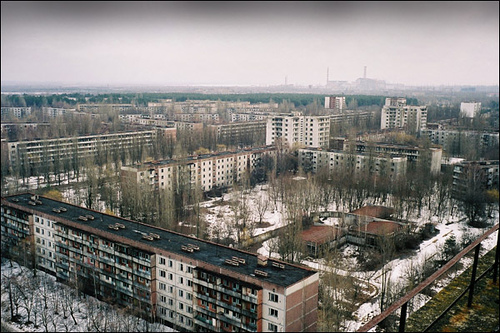Prior to the Chernobyl disaster in 1986, Nuclear power was becoming more and more prevalent throughout the world. There was much optimism that a safe and easy source of energy had been found and the leading authorities were doing their best to push positive public opinion. It is doubtful the scientist were as naive to the possible consequences as they campaigned to the public, saying things like the academician M.A. Styrikovich’s statement, “Nuclear power stations are like stars that shine all day long.” [9, 2] The public was lead to believe that the ‘peacful atom’ and nuclear power was called, “was virtually a panacea and the ultimate in genuine safety, ecological cleanliness, and reliability.” [9, 2] A strong analogy was made to basic steam furnaces. As the deputy head of the State Committee on the Utilization of Nuclear Energy stated: “Nuclear reactors are regular furnaces, and the operators who run them are stokers.”[9, 2] This clever comparison also allowed nuclear companies to hire workers and pay them low wages, because after all, the work was easy safe and clean, just like the scientists said.
In 1974, 12 years before the accident, at a gathering for the Soviet Academy of Sciences, some of the general attitudes can be summed up by a respected acadamian named A.P. Aleksandrov, “Our critics claim that nuclear power is dangerous and poses the threat of radioactive contamination of the environment. But what about a nuclear war, comrades? What kind of contamination would occur then?” There was a reason such a statement was made in closed company rather than to the public press.
One of the scientists, A.M. Petrosyants, who spent a lot of his time advocating the safety of nuclear energy, even writing a book called “From Scientific Search to Nuclear Industry” said of nuclear energy: “It must be acknowledged that nuclear energy has a brilliant future. Nuclear energy has definite advantages over conventional energy. Nuclear power stations are entirely independent of sources of raw materials (uranium mines), because nuclear fuel is very compact and can be kept in use for a very long time. Nuclear power stations hold great promise for the use of powerful reactors.”
Later, after the disaster, this same man let on to the less popular side of his optimistic thinking by saying “Science requires victims.” [9, 5]
It seems that though nuclear power did, and still does have tremendous potential, at the time of the Chernobyl disaster, the public was kept blissfully unaware to the potential dangers. |
 |









